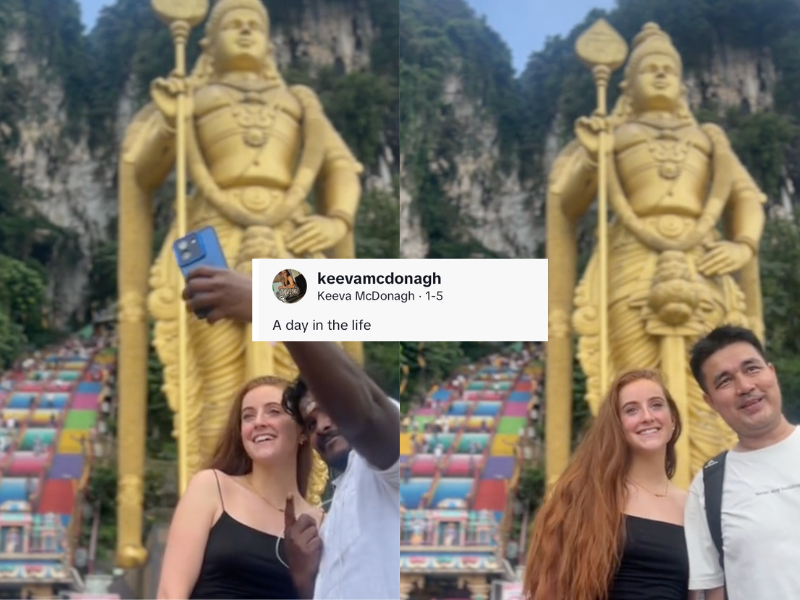It’s very common for redheads who travel abroad to be photographed, recorded or stared at by locals. Red hair is relatively rare globally, particularly in regions like Asia and Africa where it’s less common. Here are 3 reasons why redheads are popular in certain countries:
1. We’re simply rare and people want to take a photo
People with red hair may attract attention simply because they stand out from the local population. In some cultures, features that deviate from the norm are seen as unusual or fascinating, leading to curiosity or admiration. Additionally, red hair has been historically associated with various myths, stereotypes, and cultural beliefs. For example, in some cultures, redheads are believed to possess unique characteristics or powers, or they may be associated with certain superstitions or legends. These cultural perceptions can contribute to the fascination or attention directed towards redheads in certain regions.
It’s essential to note that while some people may stare or photograph redheads out of genuine curiosity or admiration, others may do so without considering the individual’s feelings or privacy. As with any form of attention, it’s important to respect the person’s autonomy and boundaries.
A recent video by TikTok user Keeva McDonagh, shows this exact experience happening in South East Asia.
@keevamcdonagh A day in the life
2. Fair skin is admired in some countries
Another factor is that many redheads have fair skin. A study done by the World Health Organization revealed that 40% of women in countries such as China, Malaysia, the Philippines, and South Korea routinely use skin-whitening products to achieve a fair skin look that many redheads naturally have. The practice of skin lightening or bleaching is rooted in complex historical, social, and cultural factors. Some of the reasons why individuals in certain countries may bleach their skin to achieve a lighter complexion include:
1. Social status and beauty standards: In many cultures, lighter skin has been historically associated with higher social status and perceived beauty. Lighter-skinned individuals may be seen as more attractive or desirable, leading some people to lighten their skin in pursuit of these beauty ideals.
2. Media influence: Advertising and media representation often promote light skin as the standard of beauty, particularly in regions where European beauty standards have been historically dominant. Images of light-skinned individuals are commonly featured in fashion, entertainment, and advertising, contributing to the perception that lighter skin is more desirable.
3. Employment and marriage prospects: In some societies, having lighter skin may be seen as advantageous for employment opportunities or marriage prospects. Lighter-skinned individuals may be perceived as more educated, affluent, or socially desirable, leading some people to lighten their skin to improve their chances in these areas.
4. Internalized racism: In societies where colonialism or colorism has left lasting impacts, there may be deep-seated prejudices and biases against darker skin tones. Some individuals may internalize these negative attitudes and view lighter skin as superior or more socially acceptable, leading them to seek skin-lightening treatments.
5. Psychological factors: Skin-lightening practices may also be driven by psychological factors such as low self-esteem, body dysmorphia, or a desire to fit in with societal norms. Individuals may believe that achieving a lighter complexion will boost their confidence or social acceptance.
It’s important to recognize that skin lightening can have serious health consequences, including skin damage, pigmentation disorders, and even long-term health risks. Additionally, the perpetuation of skin-lightening practices perpetuates harmful beauty standards and reinforces systemic inequalities based on skin color. Efforts to promote self-acceptance, diversity, and inclusive beauty standards are essential in challenging these harmful norms and promoting positive body image for all skin tones.
3. They may think you’re a celeb
There’s also a third, maybe less common reason and that’s because you look like a redhead celebrity. Many people think all redheads all look alike, and if you’re in a country with very few redheads, someone might mistake you for a celeb and want to snap your picture.
Has this ever happened to you?
Rock it like a Redhead?
RELATED POSTS
READ: Photographer Captures Photos of Redheads Around the World
READ: 6 Tips for Better Smartphone Photography of Your Red Hair



